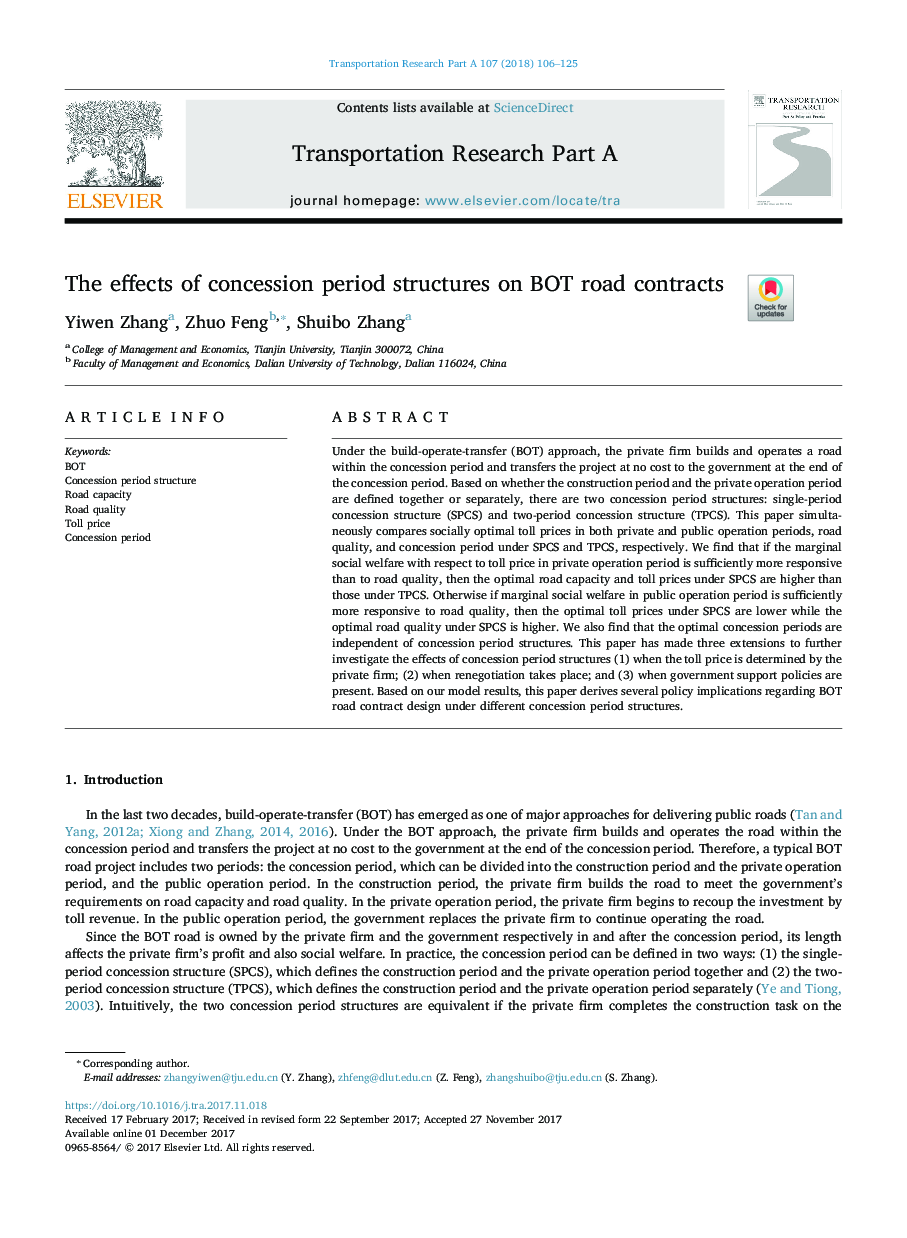| Article ID | Journal | Published Year | Pages | File Type |
|---|---|---|---|---|
| 6780568 | Transportation Research Part A: Policy and Practice | 2018 | 20 Pages |
Abstract
Under the build-operate-transfer (BOT) approach, the private firm builds and operates a road within the concession period and transfers the project at no cost to the government at the end of the concession period. Based on whether the construction period and the private operation period are defined together or separately, there are two concession period structures: single-period concession structure (SPCS) and two-period concession structure (TPCS). This paper simultaneously compares socially optimal toll prices in both private and public operation periods, road quality, and concession period under SPCS and TPCS, respectively. We find that if the marginal social welfare with respect to toll price in private operation period is sufficiently more responsive than to road quality, then the optimal road capacity and toll prices under SPCS are higher than those under TPCS. Otherwise if marginal social welfare in public operation period is sufficiently more responsive to road quality, then the optimal toll prices under SPCS are lower while the optimal road quality under SPCS is higher. We also find that the optimal concession periods are independent of concession period structures. This paper has made three extensions to further investigate the effects of concession period structures (1) when the toll price is determined by the private firm; (2) when renegotiation takes place; and (3) when government support policies are present. Based on our model results, this paper derives several policy implications regarding BOT road contract design under different concession period structures.
Related Topics
Physical Sciences and Engineering
Engineering
Civil and Structural Engineering
Authors
Yiwen Zhang, Zhuo Feng, Shuibo Zhang,
